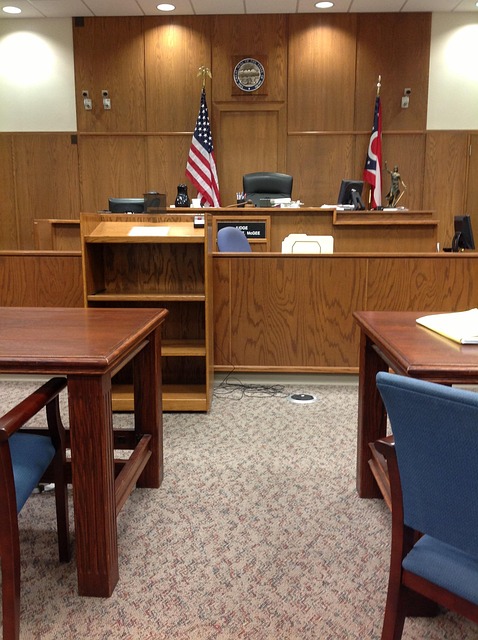The Timeline for Post-Conviction Relief Process offers a second chance for justice in criminal cases, with defendants submitting motions and the court conducting a thorough review. An experienced criminal defense attorney guides clients through this intricate process, which can lead to reduced sentences, overturned convictions, or freedom for the wrongfully incarcerated. This multi-stage journey involves filing notices of appeal, meticulous research, strategic planning, and document preparation within strict jurisdiction timelines. Top-tier attorneys navigate complex rules, gather new evidence, and craft persuasive arguments to ensure fairness and alter outcomes in cases ranging from white-collar to general charges.
Criminal Defense Attorneys play a pivotal role in ensuring fairness within the criminal justice system. This article delves into the intricate world of post-conviction relief, providing an overview for criminal cases. We explore the crucial role attorneys serve in navigating complex legal procedures, offering insights on effective strategies. From understanding the timeline for post-conviction relief process to uncovering common challenges, this guide offers a comprehensive look at how skilled legal representation can make a significant difference.
- Understanding Post-Conviction Relief: An Overview for Criminal Cases
- The Role of a Criminal Defense Attorney in Navigating Legal Procedures
- Timeline Breakdown: Steps Involved in Seeking Post-Conviction Relief
- Common Challenges and Strategies in Post-Conviction Appeals
- Success Stories: How Effective Legal Representation Can Turn the Tide
Understanding Post-Conviction Relief: An Overview for Criminal Cases

Understanding Post-Conviction Relief is a vital aspect for anyone involved in criminal cases, offering a path to potential justice beyond initial verdicts. This process, focused on reviewing and correcting convictions, plays a crucial role in ensuring fairness, especially when dealing with life-altering outcomes like imprisonment. The timeline for this relief process typically involves several key stages.
First, defendants must file a motion outlining the reasons for their appeal, citing errors or new evidence that could impact their case. This is followed by a thorough review by the court, which examines both the legal arguments and the unique circumstances of each case. If successful, post-conviction relief can lead to reduced sentences, overturned convictions, or even freedom for those wrongfully incarcerated, highlighting the potential for achieving extraordinary results in criminal defense. An experienced attorney specializing in this field is instrumental throughout all stages of the investigative and enforcement process, ensuring clients’ rights are protected and their stories are accurately represented.
The Role of a Criminal Defense Attorney in Navigating Legal Procedures

A Criminal Defense Attorney plays a pivotal role in guiding clients through the complex landscape of the criminal justice system. Their primary objective is to protect the rights of the accused and ensure that justice is served fairly. In navigating the legal procedures, these attorneys are well-versed in understanding the timeline for post-conviction relief processes, which is crucial for appealing verdicts and seeking potential setbacks or reversals. This expertise is essential throughout all stages of the investigative and enforcement process, from initial arrests to jury trials.
With an unprecedented track record of success, these legal professionals meticulously examine evidence, interview witnesses, and craft robust defenses. They provide strategic advice, ensuring their clients are well-informed about their options and the potential outcomes. By employing aggressive advocacy techniques, they challenge the prosecution’s case, protect against wrongful convictions, and advocate for reduced sentences or acquittals. The role of a Criminal Defense Attorney is to offer unwavering support, ensuring that individuals facing criminal charges have access to quality representation during every critical step in the legal process.
Timeline Breakdown: Steps Involved in Seeking Post-Conviction Relief

Seeking post-conviction relief is a complex process that involves several steps and can take an extensive amount of time. Understanding the timeline for this legal procedure is crucial, especially as it varies across the country. The initial phase typically begins within days or weeks after a conviction, where attorneys file a notice of appeal with the appropriate court, challenging the verdict. This sets in motion a series of events that could potentially lead to a complete dismissal of all charges.
The subsequent stages involve extensive research, legal strategy development, and document preparation. Defense lawyers meticulously examine the case, looking for any procedural errors, unconstitutionalities, or evidence misconduct that may have contributed to an unfair trial. This process is often time-consuming, but it is an unprecedented track record of success that distinguishes top-tier criminal defense attorneys.
Common Challenges and Strategies in Post-Conviction Appeals

The post-conviction appeal process presents unique challenges for Criminal Defense Attorneys navigating the intricate legal landscape. One of the primary hurdles is the strict timeline for filing appeals, which varies by jurisdiction but generally demands swift action within a year of the conviction or sentencing. This urgency necessitates efficient case management and a thorough understanding of the applicable laws.
Strategizing for success in these cases often involves meticulous review of trial transcripts, gathering new evidence relevant to the verdict, and articulating persuasive legal arguments. Attorneys must also be adept at navigating procedural rules, ensuring compliance with formalities like filing requirements and deadlines. By focusing on these aspects, general criminal defense attorneys can effectively advocate for their clients, aiming to avoid or reverse unfavorable judgments, especially when dealing with complex cases that could have led to an indictment.
Success Stories: How Effective Legal Representation Can Turn the Tide

In the realm of criminal law, success stories often hinge on effective legal representation. Criminal defense attorneys play a pivotal role in navigating the complex justice system and ensuring fairness for their clients. A skilled advocate can significantly alter the timeline for post-conviction relief processes, which are crucial for those seeking to challenge their convictions or sentences. Through meticulous research, strategic planning, and powerful argumentation, these professionals can achieve extraordinary results, even in cases involving white collar defense or general criminal charges.
Many success stories highlight the impact of proactive legal teams who don’t just defend their clients but also work towards exonerating them. By presenting compelling evidence, disputing faulty procedures, and exploiting procedural loopholes, successful defense attorneys turn potential tragedies into favorable outcomes. This not only ensures justice but also underscores the importance of competent representation in shaping the course of criminal cases.
In conclusion, understanding post-conviction relief is pivotal for those seeking justice in criminal cases. A skilled Criminal Defense Attorney plays a crucial role in navigating complex legal procedures and ensuring the rights of their clients are protected throughout the process. By familiarizing oneself with the detailed Timeline for Post-Conviction Relief Process, from initial filing to appeals, individuals can significantly improve their chances of success. Overcoming common challenges through strategic planning and leveraging successful case strategies provides hope and a road map for turning adverse outcomes into victories.






